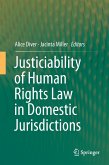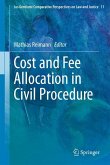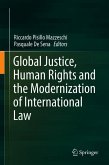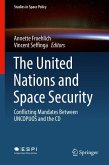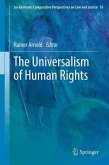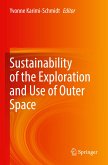This book examines development-induced displacement (DID), a form of internal displacement in which individuals or groups are involuntarily moved from their homes to make room for development projects, and its adverse consequences in light of international human rights law (IHRL). Using a human rights-based approach as a theoretical framework, it seeks to (re)frame the socio-economic consequences of DID as human rights issues and explore IHRL responses to these issues. It further aims to identify and analyse the human rights frameworks and norms applicable in the context of displacement, the rights of people affected, and the corresponding obligations of states.
While there is currently no binding and comprehensive international legal framework specifically addressing DID, individuals affected can benefit from the general protections provided under IHRL. Additionally, there are specialized human rights regimes that deal with specific subject matters relevant to DID or offer normative protections to specific groups affected by DID. Notably, the frameworks concerning the rights of internally displaced persons, the rights of indigenous peoples, and the right to development provide applicable normative standards. Relevant standards can also be drawn from various policy frameworks adopted by international financial institutions funding development projects potentially resulting in displacement. This work draws on these legal and policy frameworks. Overall, the objectives of this book are twofold: first, to map out existing IHRL norms applicable to DID; and second, to assess the adequacy of these norms in addressing the adverse consequences and distinctive features of DID. To these ends, the book identifies the relevant frameworks and norms, examines their application within the context of DID, and critically engages with their gaps and limitations.
Those working at the intersection of human rights and development or displacement will find this book relevant. It also offers valuable insights for protecting the rights of individuals or groups potentially affected by DID or for implementing DID in accordance with human rights standards.
Roman Girma Teshome is Assistant professor at Utrecht University s School of Law in Utrecht, The Netherlands. This is volume 104 in the Human Rights Research Series.
While there is currently no binding and comprehensive international legal framework specifically addressing DID, individuals affected can benefit from the general protections provided under IHRL. Additionally, there are specialized human rights regimes that deal with specific subject matters relevant to DID or offer normative protections to specific groups affected by DID. Notably, the frameworks concerning the rights of internally displaced persons, the rights of indigenous peoples, and the right to development provide applicable normative standards. Relevant standards can also be drawn from various policy frameworks adopted by international financial institutions funding development projects potentially resulting in displacement. This work draws on these legal and policy frameworks. Overall, the objectives of this book are twofold: first, to map out existing IHRL norms applicable to DID; and second, to assess the adequacy of these norms in addressing the adverse consequences and distinctive features of DID. To these ends, the book identifies the relevant frameworks and norms, examines their application within the context of DID, and critically engages with their gaps and limitations.
Those working at the intersection of human rights and development or displacement will find this book relevant. It also offers valuable insights for protecting the rights of individuals or groups potentially affected by DID or for implementing DID in accordance with human rights standards.
Roman Girma Teshome is Assistant professor at Utrecht University s School of Law in Utrecht, The Netherlands. This is volume 104 in the Human Rights Research Series.


